
Policy Ideas No. 86 –
Political Influencers in Malaysia: Growth, Methods and Policy Implications
Authors: Sabrina Firdaus Aloysius and Dr Ross Tapsell
The 15th General Election (GE15) marked a significant rise in the use of social media influencers in Malaysian politics, revealing a modern manifestation of an old phenomenon: the use of key opinion leaders (KOLs) to shape public discourse. This report draws on first-hand accounts from influencers, political actors, industry intermediaries, and experts, offering a rare glimpse into the opaque ecosystem behind political influence on social media.
In today’s digital environment, influencers face dual pressures — financiers who commission content and algorithms that reward sensationalism over accuracy. As their role expands, the largely invisible flow of money from clientele (government agencies and political actors) blurs the line between authentic political expression with paid persuasion. As an exploratory study into a complex and constantly evolving landscape, this paper concludes with broad yet deliberate recommendations aimed at spurring further conversation. It identifies three priority areas for future consideration: transparency, accountability, and literacy.
Read the report for insights into the machinery behind political influence in Malaysia’s digital age and policy recommendations to build a more accountable digital democracy.
Pilihan Raya Umum ke-15 (PRU15) menandakan peningkatan ketara penggunaan pempengaruh media sosial dalam politik Malaysia, memperlihatkan manifestasi moden bagi fenomena lama: penggunaan pemimpin pendapat utama (KOL) untuk membentuk wacana awam. Laporan ini adalah berdasarkan pengalaman terus para pempengaruh, pemain politik, pihak perantara industri, dan pakar, memberikan gambaran ekosistem yang kabur di sebalik pengaruh politik di media sosial.
Dalam persekitaran digital hari ini, pempengaruh menghadapi tekanan berganda — daripada pembiaya penghasilan kandungan dan algoritma yang mengutamakan sensasi berbanding ketepatan maklumat. Apabila peranan mereka berkembang, aliran wang yang kebanyakannya tersembunyi daripada pelanggan (agensi kerajaan dan pemain politik) mengaburkan sempadan antara ekspresi politik yang tulen dengan kepercayaan berbayar. Sebagai kajian penerokaan terhadap lanskap yang rumit dan sentiasa berubah, kertas laporan ini memberikan cadangan umum namun bersasar yang bertujuan merangsang perbincangan lanjut. Ia mengenal pasti tiga bidang keutamaan untuk pertimbangan masa hadapan: ketelusan, kebertanggungjawaban, dan celik digital.
Baca laporan ini untuk mendapatkan pandangan mengenai jentera di sebalik pengaruh politik dalam era digital Malaysia dan cadangan dasar untuk membina demokrasi digital yang lebih bertanggungjawab.

Policy Ideas No. 81 –
Effective Reporting and Disclosure of Political Finance: Guidelines, Best Practices, Challenges and Lessons for Malaysia
Authors: Fernando Casal Bértoa and Sri Murniati Yusuf
Transparency in political financing is essential for democratic accountability and a key safeguard against corruption. In Malaysia, while candidates and parties are required to submit financial reports, these are neither publicly accessible nor effectively enforced. As the country moves toward legislating political donations, transparency must be a cornerstone—through clear rules on bookkeeping, reporting, and disclosure. Drawing on global practices from countries like the UK, Latvia, and Canada, this paper outlines practical steps for implementing a robust, phased transparency framework. These include digital reporting, public databases, and an independent regulator—all aimed at building public trust while protecting donors and recipients from undue risk.

The All-Party Parliamentary Group’s (APPG) Political Financing Bill 2023
The Political Financing Bill 2023, drafted in collaboration with the All-Party Parliamentary Group (APPG) on Political Financing, aims to establish a comprehensive legal framework for regulating public and private funding of political parties in Malaysia.
It introduces strict disclosure requirements, prohibits foreign and anonymous donations above specified limits, and sets penalties for non-compliance. The bill also establishes a Political Financing Commission to oversee fair fund distribution and enforce transparency, ensuring accountability in political financing.
Rang Undang-Undang Pendanaan Politik 2023 Kumpulan Rentas Parti Parlimen Malaysia (KRPPM)
Rang Undang-Undang Pendanaan Politik 2023, yang digubal dengan kerjasama Kumpulan Rentas Parti Parlimen Malaysia (KRPPM) mengenai Pendanaan Politik, bertujuan untuk mewujudkan rangka kerja undang-undang yang komprehensif bagi mengawal selia pendanaan awam dan swasta kepada parti politik di Malaysia.
Ia memperkenalkan keperluan pendedahan yang ketat, melarang sumbangan asing dan sumbangan tanpa nama melebihi had yang ditetapkan, serta menetapkan penalti bagi ketidakpatuhan. Rang undang-undang ini juga menubuhkan Suruhanjaya Pendanaan Politik untuk mengawasi pengagihan dana yang adil dan menguatkuasakan ketelusan, sekali gus memastikan akauntabiliti dalam pendanaan politik.
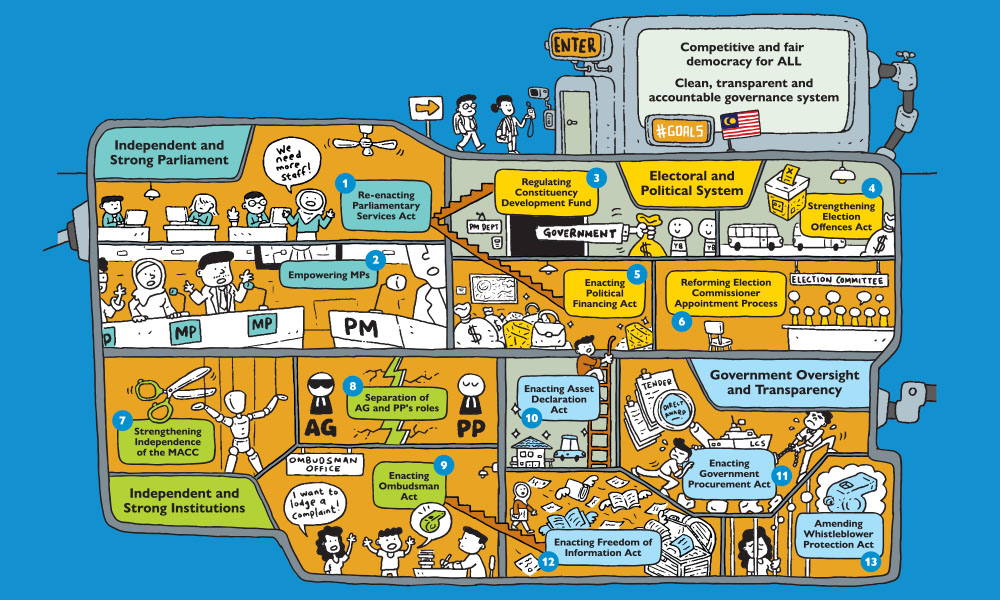
Reforming Our Institutions
Blueprint for Reforms
The Institute for Democracy and Economic Affairs (IDEAS) launched a blueprint entitled “Reforming Our Institutions: Blueprint for Reforms.” The blueprint was developed through engagement with multiple Civil Society Organisations (CSOs), experts and Members of Parliament in an effort to identify reform priorities over the next three years, as well as interlinkages between specific reform initiatives.
Recognising that there are a slew of institutional reforms that Malaysia must implement across different areas, we have put together a visualisation of 13 individual reforms, which fall into four clusters.
Institut Demokrasi dan Hal Ehwal Ekonomi (IDEAS) melancarkan sebuah rangka tindakan bertajuk "Reformasi Institusi: Rangka Tindakan Reformasi." Rangka tindakan ini dibangunkan melalui penglibatan pelbagai organisasi masyarakat sivil (CSO), pakar dan Ahli Parlimen dalam usaha untuk mengenal pasti keutamaan pembaharuan dalam tempoh tiga tahun akan datang, serta kesalinghubungan antara inisiatif pembaharuan khusus.
Menyedari bahawa terdapat banyak reformasi institusi yang harus Malaysia laksanakan merentasi bidang yang berbeza, kami telah menyusun visualisasi 13 reformasi individu, dalam 4 kategori.
For more information regarding the blueprint, please download the brochure.

Brief IDEAS No. 40 -
Tax Incentives for Political Donations: Lessons for Malaysia
Authors: Syazwan Zainal and Tan Wan Ying
This brief seeks to examine the tax incentives used in Germany, Canada, Thailand and Australia to encourage political donations from the public. The literature suggests that tax incentives can be used as a tool to encourage the public to donate to political parties and politicians in a transparent and accountable manner while increasing public participation in the political process.
The tax regimes in Australia, Thailand and Germany uses tax deductions while Canada uses tax credits, with different rates and requirements in each country. Some of the requirements include limits on amount of donations to mitigate the risk of outsized influence of big money, prohibited donors such as foreign entities and disclosure or reporting requirements to ensure transparency. The regulatory ecosystem can be used as a reference for future policymaking on political donations in Malaysia.
Tax incentives can be a useful way to encourage people and corporations to donate to the party that they believe in and compensate for the fear that both parties and the public have of the requirement for transparency and accountability. As such, tax incentives can be part of more comprehensive reforms of political financing in Malaysia, which should include public funding of political parties and transparency requirements for political donations, as outlined by the Political Financing Bill proposed by the All-Party Parliamentary Group (APPG) on Political Financing, in which IDEAS serves as Secretariat.
Kertas cadangan dasar ringkas ini bertujuan mengkaji insentif cukai yang digunakan di Jerman, Kanada, Thailand, dan Australia untuk mendorong sumbangan politik daripada orang awam. Sorotan kajian menunjukkan bahawa insentif cukai boleh digunakan sebagai alat untuk mendorong orang awam menyumbang kepada parti politik dan ahli politik secara telus dan bertanggungjawab sambil meningkatkan penyertaan orang awam dalam proses politik.
Sistem cukai di Australia, Thailand, dan Jerman menggunakan kaedah potongan cukai manakala Kanada menggunakan kredit cukai, dengan kadar dan keperluan yang berbeza di setiap negara. Beberapa keperluan termasuk had sumbangan untuk mengurangkan risiko pengaruh wang berlebihan, penderma yang dilarang seperti entiti asing, dan keperluan pendedahan atau keperluan pelaporan untuk memastikan ketelusan. Ekosistem pengawalseliaan ini boleh digunakan sebagai rujukan untuk dasar-dasar masa hadapan mengenai sumbangan politik di Malaysia.
Insentif cukai boleh menjadi cara berguna untuk mendorong orang dan syarikat menyumbang kepada parti yang mereka percayai dan menggantikan ketakutan yang ada dalam kalangan parti politik dan orang awam mengenai keperluan ketelusan dan pertanggungjawaban. Oleh itu, insentif cukai boleh menjadi sebahagian daripada reformasi yang lebih menyeluruh dalam pendanaan politik di Malaysia, yang seharusnya merangkumi pembiayaan awam bagi parti politik dan keperluan ketelusan untuk sumbangan politik, sebagaimana yang dicadangkan oleh Rang Undang-Undang Pendanaan Politik yang dicadangkan oleh Kumpulan Rentas Parti Parlimen Malaysia (APPG) mengenai Pendanaan Politik, yang mana IDEAS berperanan sebagai Sekretariat.
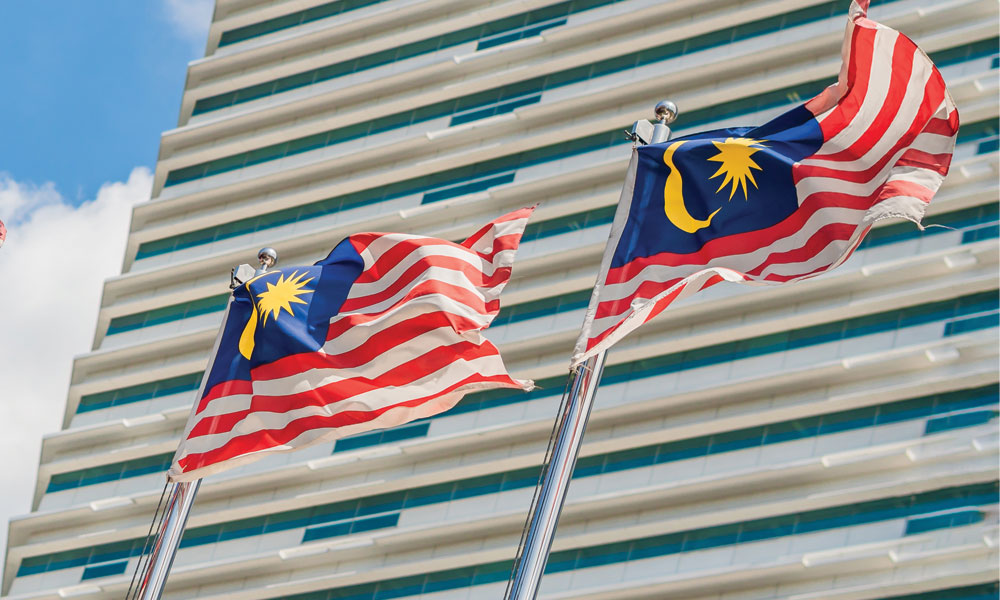
Malaysia’s Ongoing Tussle With Democracy
Halmie Azrie Abdul Halim
Many observers of Malaysia anticipated a more progressive shape of democracy for the country as it bucked the global and regional trend of sliding backwards into more authoritarian regimes or far-right populist rule. Unfortunately, the deposed BN coalition effectively manufactured a narrative to entice its long-time political rival, the Pan-Malaysian Islamic party (PAS), into working together in forming the National Concord (MN) to destabilize the PH government and potentially return the BN coalition to power. This strategy led to the eventual resignation of the seventh prime minister and self-sabotage of the promising “New Malaysia” agenda. Leadership ambiguity ensued for several weeks until the hastily assembled PN coalition stepped in as a substitute amidst the start of the pandemic.
The far less transparent and rather desperate installation of the PN government without the people’s mandate led to clear and urgent demands from the Malaysian public, especially its civil society, to rethink democracy and reform its decaying institutions as posited by Francis Fukuyama in his works. As the eighth prime minister was forced to make way for the current prime minister to avoid being removed in a vote of no confidence in Parliament, numerous concessions were dealt out as part of a Memorandum of Understanding (MoU) between the fragile government and the largest opposition bloc. This further invited public criticism as the deal was discussed and done among the leaders of the respective parties and its supporting members of Parliament (MPs).
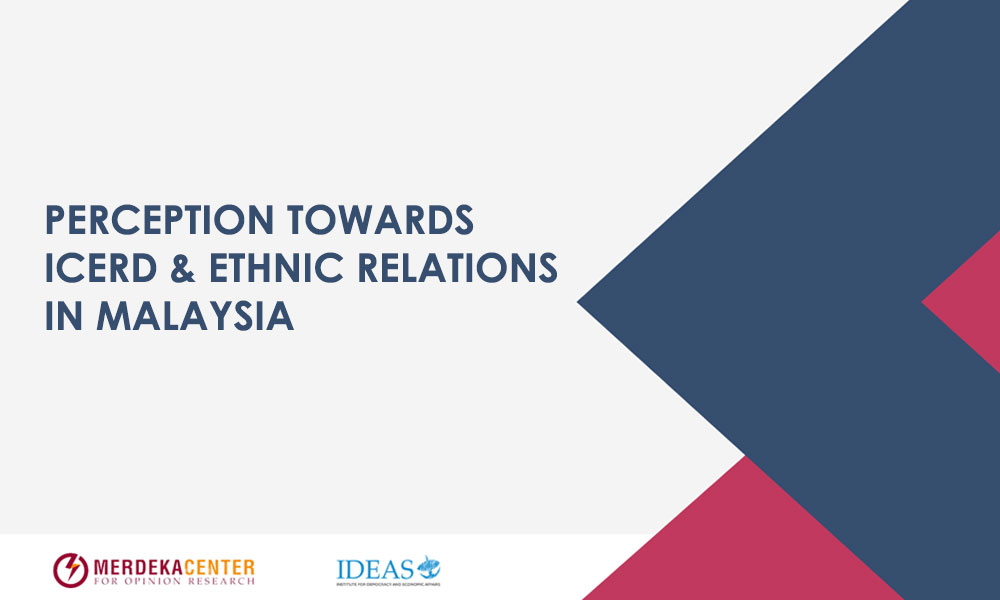
The 2nd National Perception Survey Towards ICERD and Etnic Relations in Malaysia
Conducted by Merdeka Center
Conducted by Merdeka Center between February to March of 2022, this opinion poll serves to measure the Malaysian adult's perception towards the implementation of ICERD based on the response from 1202 respondents. The survey has two parts, firstly on matters pertaining to ICERD such as level of awareness, general perception and overall acceptance towards the convention. The second part consists of Malaysians attitude towards identity, discrimination, special rights and cross-ethnic relations. This survey is part of the 'Promoting National Unity and Interracial Harmony' project under the Democracy and Governance unit at IDEAS, funded by the European Union.
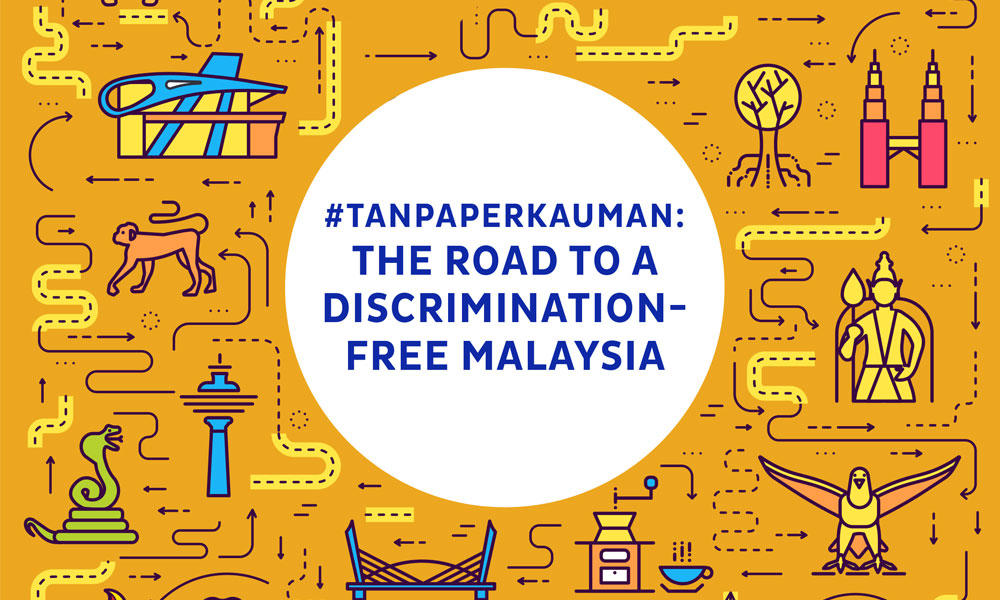
The #TanpaPerkauman Graphic Handbook
The Road to a Discrimination - Free Malaysia
Author: Collaboration betweeen IDEAS and Imagined Malaysia
The #TanpaPerkauman Graphic Handbook
A collaboration betweeen IDEAS and Imagined Malaysia which serves to offer a concise compilation of the #TanpaPerkauman infographics under the National Unity and Interracial Harmony project funded by the European Union (EU). This handbook functions also as an educational resource and visual aid to inform and create greater awareness among the public regarding race relations, human rights, and the significance of international conventions for Malaysia from a historical-social perspective.
Buku Panduan Grafik #TanpaPerkauman
Suatu usaha kerjasama antara IDEAS dan Imagined Malaysia yang menyimpulkan set infografik #TanpaPerkauman yang diterbitkan sebelum ini di bawah projek Perpaduan Nasional dan Keharmonian Kaum yang didanai oleh pihak Kesatuan Eropah (EU). Buku panduan ini turut berfungsi sebagai sebuah sumber rujukan berbentuk visual yang memaklum dan mewujudkan lebih kesedaran dalam kalangan masyarakat awam berkenaan isu perhubungan antara kaum, hak asasi manusia, serta kepentingan dan fungsi konvensyen antarabangsa buat Malaysia dari sudut pandang sejarah dan sosial.
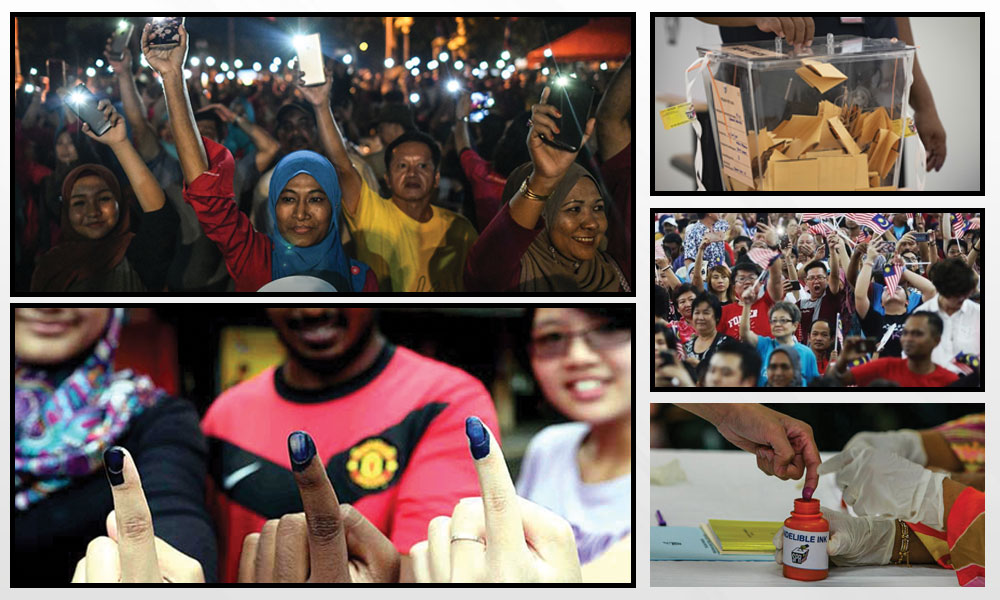
Brief IDEAS No. 34
Political financing in Malaysia: Aligning reforms with voters’ expectations
Author:Aira Azhari
Political corruption in Malaysia is multi-faceted, multi-layered and deep rooted. In 2015, revelations brought about by the 1Malaysia Development Berhad (1MDB) scandal became a turning point in Malaysia’s history. The global scandal prompted civil society groups and ordinary citizens to mobilise and call for transparency and accountability in political funding. Numerous recommendations to improve transparency in our political financing system have been submitted to the government over the years and Pakatan Harapan (PH) came close to tabling the Political Financing Bill in Parliament before the government collapsed during the Sheraton Move in February 2020.
This paper provides some insight into the relationship between voter and politician by discussing the findings from a series of workshops IDEAS conducted with youth wings from political parties across Malaysia on the topic of political financing. To try and understand the perspective of voters, in May 2021 IDEAS commissioned a survey to understand Malaysians’ perception of politicians. The findings from this survey will be presented and discussed, which will contribute to understanding the linkages between voter expectations and political financing.